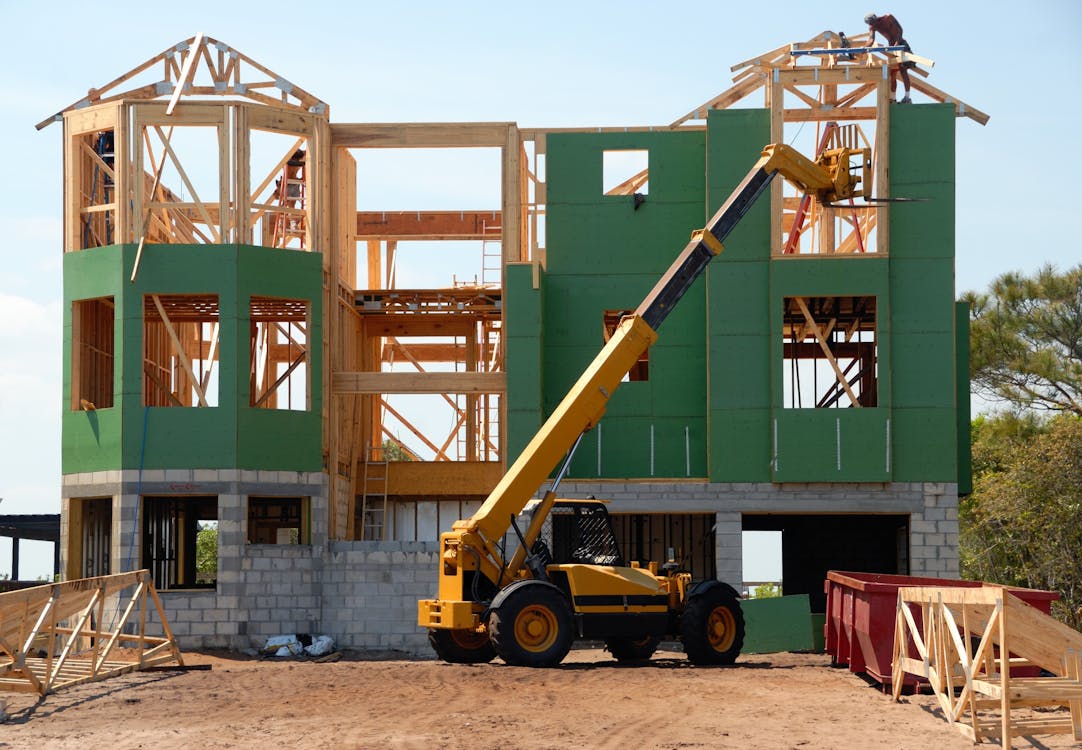Image Source: Almar Demolition
Demolishing a building is a complex process that requires careful planning, expertise, and adherence to safety regulations. Whether you’re dealing with a residential or commercial structure, the demolition process generally follows a series of stages to ensure the job is done safely and efficiently.
In this guide, we’ll walk you through the six stages of building demolition, explain when to contact a demolition contracting company, and explore how these professionals can assist with both residential and commercial demolition projects.
1. Pre-Demolition Assessment
Before any demolition work begins, a comprehensive assessment of the building and its surroundings is essential. This step involves identifying potential hazards, determining the presence of hazardous materials like asbestos or lead, and evaluating the structural integrity of the building. A pre-demolition survey helps in creating a detailed plan to ensure safety during demolition.
2. Obtaining Necessary Permits
Demolition projects are subject to various local, state, and federal regulations. Depending on your location and the nature of the project, you may need to obtain permits and approvals from the relevant authorities. This is a crucial step, and failure to secure the necessary permits can result in legal issues and delays.
3. Environmental Remediation
If the building contains hazardous materials, such as asbestos, these materials must be safely removed and disposed of following environmental regulations. This step is essential to protect the health of workers and prevent contamination of the surrounding environment.
4. Structural Demolition
The actual demolition process involves bringing down the building in a controlled manner. Demolition contractors use various methods, including implosion, wrecking ball, or selective demolition, depending on factors such as the building’s size, location, and surrounding environment. The goal is to minimize the impact on adjacent structures and ensure safety.
5. Debris Removal
Once the structure is brought down, the site needs to be cleared of rubble and debris. Demolition contractors use heavy machinery and equipment to remove and transport debris to appropriate disposal facilities. Proper debris removal is crucial to prepare the site for future construction or development.
6. Salvage and Recycling
Whenever possible, demolition contractors salvage materials from the demolished building, such as wood, metal, and concrete. These materials can be recycled or reused, reducing waste and benefiting the environment. Salvage and recycling efforts promote sustainability in the demolition process.
When to Contact a Demolition Contracting Company
It’s essential to contact a demolition contracting company when you encounter the following situations:
- Structural Instability: If a building is structurally unsound and poses a safety risk, professional demolition contractors can assess the situation and safely bring it down.
- Renovation or Redevelopment: When you plan to renovate or redevelop a property, you may need to remove existing structures to make way for new construction. Demolition contractors can efficiently clear the space.
- Hazardous Materials: Buildings constructed before certain regulations may contain hazardous materials like asbestos or lead. Demolition contractors are trained to handle these materials safely.
- Environmental Regulations: Demolition projects often require compliance with environmental regulations and permitting. Demolition contractors are well-versed in these requirements and can guide you through the process.
- Commercial or Industrial Properties: Large-scale commercial or industrial buildings demand specialized equipment and expertise for demolition. Demolition contractors are equipped to handle such projects efficiently.
Image Source: Almar Demolition
How Demolition Contractors Help with Residential and Commercial Demolition
Demolition contractors play a vital role in ensuring the safe and efficient demolition of both residential and commercial buildings. Here’s how they assist with these types of projects:
Residential Demolition
- Expertise: Demolition contractors bring extensive knowledge of residential demolition techniques, safety protocols, and local regulations to your project. Their expertise ensures that the demolition is executed professionally and safely.
- Safety: Safety is paramount in residential demolition. Contractors employ rigorous safety measures to protect workers, nearby residents, and the environment during the demolition process.
- Efficiency: Demolition contractors use specialized equipment and techniques to expedite the residential demolition process, saving you time and minimizing disruptions.
- Environmental Responsibility: Contractors are committed to minimizing environmental impact in residential demolition. They handle hazardous materials appropriately and strive to recycle or salvage materials whenever feasible.
Commercial Demolition
- Specialized Equipment: Demolition contractors possess a wide range of heavy machinery and equipment tailored to the specific needs of commercial demolition projects. This ensures precision and efficiency.
- Permitting and Compliance: Navigating the regulatory landscape can be challenging for commercial projects. Demolition contractors handle the permitting process and ensure compliance with all relevant regulations, saving you time and potential legal complications.
- Project Management: Commercial demolition often involves complex logistics and coordination. Demolition contractors manage all aspects of the project, from planning to execution, ensuring a smooth process.
- Waste Management: Handling the significant amount of debris generated in commercial demolition requires proper waste management. Contractors are well-equipped to manage debris removal efficiently and responsibly.
Demolition is a multifaceted process that demands careful planning, expertise, and adherence to safety and environmental regulations. Demolition contractors are your partners in achieving a successful demolition project, whether it’s residential or commercial. By enlisting their expertise, you can ensure that your demolition is executed professionally, efficiently, and with minimal impact on the environment and surrounding community. If you find yourself facing a demolition project, remember that collaboration with experienced demolition contractors is key to its successful completion.





